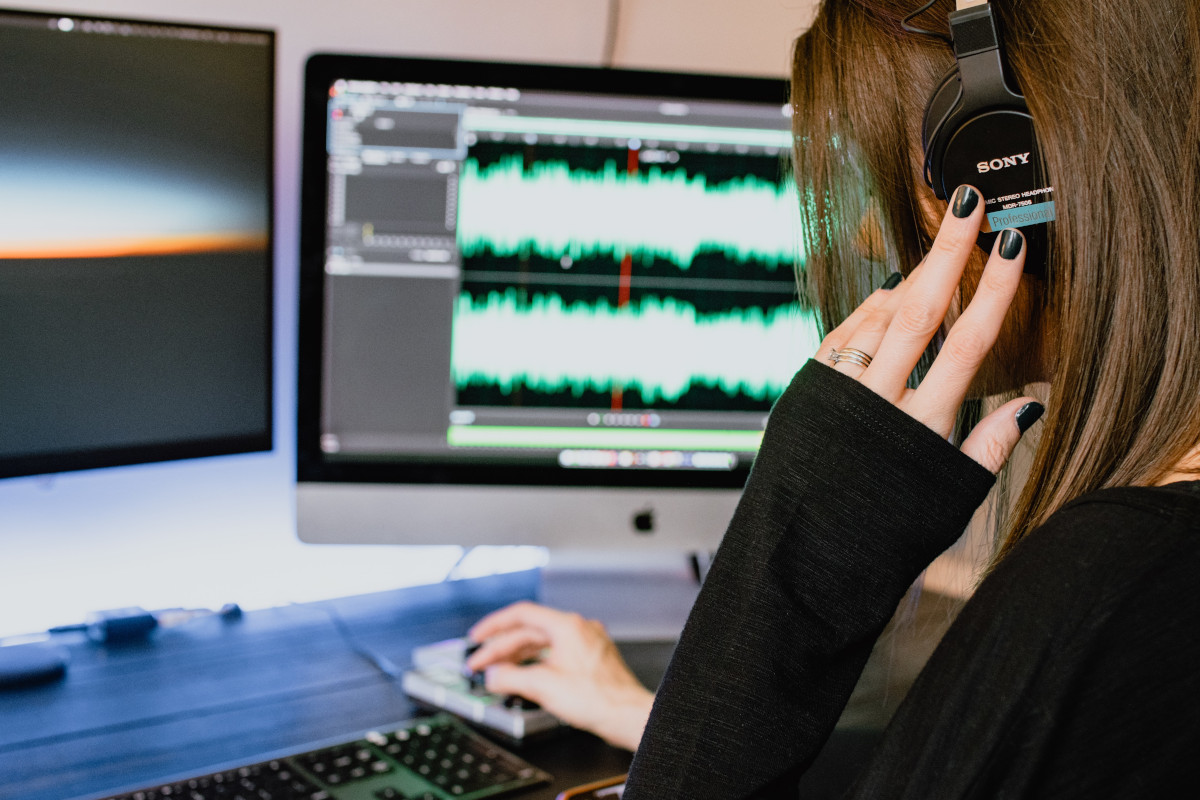The cover image for this post is by Kelly Sikkema
This blog post was written by Jamie.
Why would you want to hire an editor for your podcast? Especially when you could edit it yourself. Why spend money on having someone else do it for you. And, more importantly, why give up that control?
Let me explain a few reasons why you might want to hire a professional podcast editor.
Before we start, I’d like you all to know that I work on the following podcasts (either as the host or a co-host):
You can see a list of all the shows I’ve been involved in at my podchaser profile page - which includes:
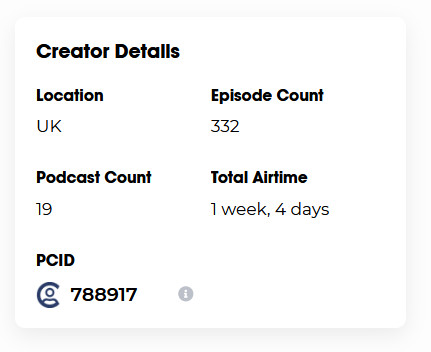
Image is correct at the time of writing this article - April 6th, 2022.
That really is a lot of content - and that’s just the content that podchaser knows about. There are a few shows that I’ve guested on which Podchaser has no visibility of.
The reason for bringing these points up, is that I can tell you that podcasting takes a lot of time. I’d like you to keep this number in your head as you read this article: 264 - that’s the number of hours of content that Podchaser knows about - at the time of writing this article.
1 - Creating and Releasing Episodes is a Lot of Effort
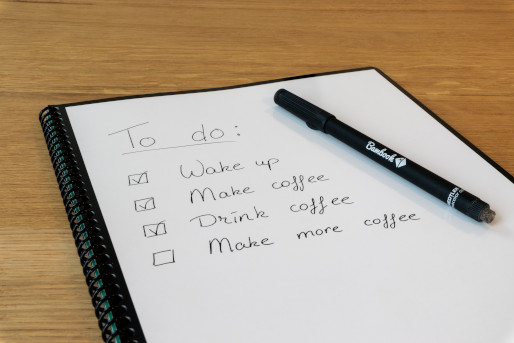
image source Thomas Bormans
So let’s talk about how much effort is actually involved in creating an episode of a podcast. And the best way to do that will be to discuss the action plan for creating a single episode of The .NET Core Podcast:
- Come up with an idea for an episode, maybe pick a technology or methodology
- Reach out to some people who are using this technology on a daily basis
- Begin an email chain figuring out whether they would be interested in being on the show
- Arrange a discovery call
- Put together an episode plan based on the discovery call
- Share the episode plan and await feedback and changes
- Schedule a date and time for recording the podcast interview
In the business, these steps are called “booking a guest”. And we haven’t started recording yet.
- Put aside 90 minutes to two hours for recording the podcast
- Record an intro and outro based on the conversation in the episode (this is done after the recording)
- Send the audio over to the editor (Mark at RJJ Software)
And we’re done with the recording phase, or “production”.
- Await Mark’s rough cut
- Share the rough cut with the guest and await any feedback
- Instruct the editor to master the episode
- QA (quality assurance) the episode - AKA: listen to it ahead of release
- Obtain a transcription of the episode - might soon be a requirement for all shows
- Create episode level artwork
- Put show notes together using the artwork, transcription, and links supplied by guest(s)
All of that is a simplified view of “post production”. And we’ve still not released the episode yet.
- Commit show notes, artwork and episode to source control*
- Create a number of scheduled Tweets, Facebook statuses, and LinkedIn updates for the episode
- Reach out to guest(s) with links and a release date
* = all of the websites that I run for my podcasts are built from source control as static sites.
We’re finally about to release the episode.
- Episode releases automatically via the podcast host’s scheduler
- Begin advertising the episode by posting about it on social media
- Start all over again with the next episode
This list isn’t complete, and it will be different for every show. But this is the gist of what I do for every episode of The .NET Core Podcast
soon to hit 100 episodes
If these steps are performed in sequence, with little break between them, they could take 2-5 days if not more. And that’s just for one of the shows that I work on.
2 - Editing is a Tiny Portion of What You’ll Do, But Takes Up Most of Your Time
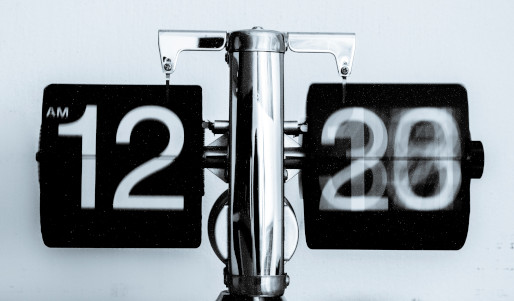
image source Djim Loic
As you can see from the list above, most of what you’ll do when creating and releasing a new episode of a podcast is actually spent on the actions around the edit. But you’ll end up spending more time in the edit than most (not all) of the other steps.
Why?
For every 30 minutes of audio, you’ll spend around 90 minutes editing it. At least.
I’ll say that again:
For every 30 minutes of audio, you’ll spend around 90 minutes editing it. At least.
It was actually my friend Jay Miller who first introduced me to that statistic. And from experience I can say that he is 100% correct. Notice that I don’t say that you’ll spend 90 minutes listening, but 90 minutes editing.
Sure, you might be one of the lucky ones who can hit record and capture gold the first time around. But this happens less often than you think, and you will have to edit your source audio in some way.
I reached out to Mark for a short list of some of the things he has had to edit around with some of his clients. He has had to edit around:
- microphone issues
- bad microphone technique
- internet connection issues (if you’re doing it remotely, which most people are)
- the sound of mobile phones ringing in the background of the recording
- pets making noise in the background of the recording
- family interrupting the recording
- desks being tapped on
- headphones being on too loud
- audio bleed from headphones is captured by the microphone
- this means that other people’s audio is recorded on yours
- and there’s very little which can be done about this
- jewellery jangling as folks talk with their hands
- guests eating during a recording
- cutlery clanking on plates
- chewing sounds
- etc.
- the sound of traffic or children playing outside of your guest’s recording space
- recording hardware failing
- computers running out of hard drive space during a recording
- applications taking up CPU time, causing the host’s or guest’s computer to hang
- a legit hurricane happening in the background
Sure, most of the time things will go great. But when they don’t, you need an expert. And you need someone who can fix things as fast as possible.
Because editing is just one of the 22 things you’ll be doing
Here are some positive things which will affect the source audio:
with a heady mix of sarcasm to make the point
You might have the world’s greatest mic for both your voice and recording space, meaning that you don’t have to massage the audio to sound just right.
You might not have to manually resynchronise all of the source audio. This usually happens due to different sample rates being used, or internet connection issues during remote recordings.
You might not have to deal with different file formats, and having to apply equalisation to restore some of the fidelity lost due to audio compression
I’ve worked with audio in wav, flac, alac, mp3, mp4, aac, flv, and even 3gp. The more compressed the audio is (and the smaller the file), the worse the audio sounds. And the worse the audio sounds, the more time I have to spend working with it.
You’ll always record all of your guests on the same audio track, so you’ll always have separate audio for everyone.
You’ll never use a free Zoom account, meaning that your recordings will be complete and not split into 40 minute chunks.
You’ll also never have legal issues with releasing the audio, as your guests will have signed a full release and they will be held responsibly for what they say not you. Because someone will take exception with something they say.
3 - Editing Audio Requires a Specific Skill Set
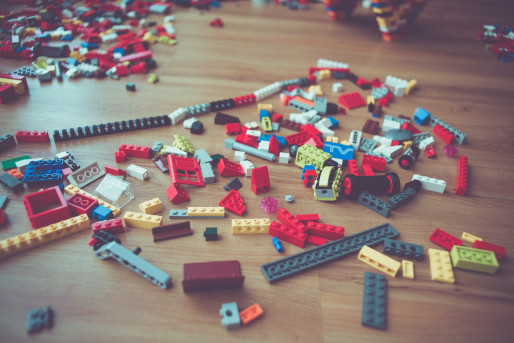
image source Markus Spiske
Anything that one person can learn, can also be understood by any other person given enough time.
As long as you have enough time to learn your chosen DAW
Digital Audio Workstation
any plugins you might need, and the science behind audio, then you will be able to become an audio editing guru. But most of us don’t have that much time in our day-to-day work lives. Remember back to the last course that you took, and how much time spent in deliberate practise was required in order for you to really understand the information or skill that you were aiming to learn
and remember that most courses are taught controlled situations to the point of almost being clinical in nature
Then think about how you might not have had the chance to learn the minutiae until AFTER you have completed the course.
I have many podcaster friends who almost constantly complain to me about having to cancel personal plans in order to get episodes ready.
Some of them have admitted to working into the wee hours of the morning in order to release on time, then heading into work for an 8+ hour long workday. I would not recommend doing this, as it’s not sustainable or healthy.
The sign of a good leader is giving your employees the space and support to be able to adapt and learn as they go, but what if they don’t have the time?
Gaining the skill set required to successfully edit and master podcast audio is certainly doable and it’s not that hard, most people just require time to either study or practise. But is there time? When your company decided to start producing a podcast to advertise their new feature or product, they likely had a time-frame for when they wanted to go to market with that feature or product. They likely want the podcast to be fully produced and ready for release ahead of that time so that they can start generating some PR for the new product with the podcast.
Have you been allowed the time to learn this new skill set and fit it in with the rest of your responsibilities?
When your car breaks down, your oven stops working, your heating system is on the fritz, or you need some building work done, you’ll likely seek out an expert. Not because you don’t know how to do the work, but because they are an expert: they can look at something, tell you exactly what the problem is, and create a solution which targets that very problem.
If your company’s new product launch relies on you learning and using a completely new skill set, can you personally guarantee that you will master that new skill set in time? Likely not.
We’ll come back to the time required at the end of the article, because the numbers can be astronomical.
4 - A Good Editor is a Great Collaborator
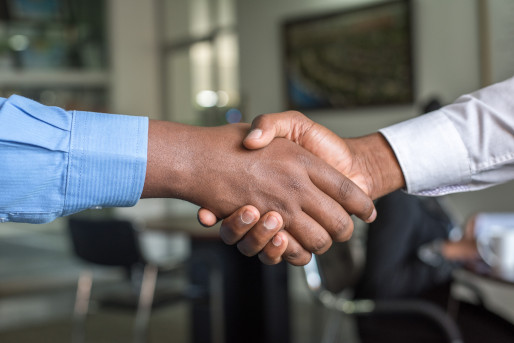
image source Cytonn Photography
Editing audio is like piecing together a jigsaw puzzle. Except that instead of arranging pieces of patterned paperboard to create a pleasing image, you are arranging disparate audio tracks to create a cohesive, entertaining, engaging, and value-driven aural experience.
you are providing value to your listeners, right?
Where jigsaw pieces are already cut to size, audio tracks usually have to be cut down, massaged, and have equalisation and normalisation applied to them in order to get them ready to be arranged.
And that’s before you start adding extra clips - music bumpers, sound effects, and ad reads (if you have them). Then everything has to be mastered, applying consistent volume levels across the whole thing.
But along with all of that, an editor is a collaborator. Your editor can give you feedback on your overall audio quality
Garbage audio in equals garbage audio out. There’s only so much you can do to fix terrible audio
They can also offer advice for fixing common problems, and can help you to come up with ideas to keep your audio sounding fresh and engaging. At the end of the day, they will be using their expertise with their chosen DAW to assemble your creative vision. Based on your time budget and source audio, they will be able to tell you what can and cannot be done.
But more than that, an audio editor spends their working life listening to audio. They know what sounds good, and what might not be a great idea. Most (if not all) editors do their work with headphones on, so they know what might sound good when piped directly into someone’s ears. A good audio editor will listen to the rendered audio with speakers or studio monitors as part of their QA steps, too. This ensures that your audio sounds the best it can do with both headphones and a speaker set.
audio engineers in the music industry do this, too. They also include car sound systems, as most people will be listening via the radio or an in-car entertainment system.
Let’s say you have an idea to include a sudden loud noise (perhaps an alarm) in your episode, a good audio editor can help you to not only find the right sound, but they’ll also ensure that it’s at a volume level which doesn’t negatively affect the experience for the listener. A good editor can not only feedback on bad ideas, but will do so in a constructive manner.
Imagine having an expert on tap, someone who knows the intimate details of what you are trying to achieve, and will do everything that they can to help you achieve it.
That’s what an audio editor can do for you.
5 - The Numbers are Astronomical
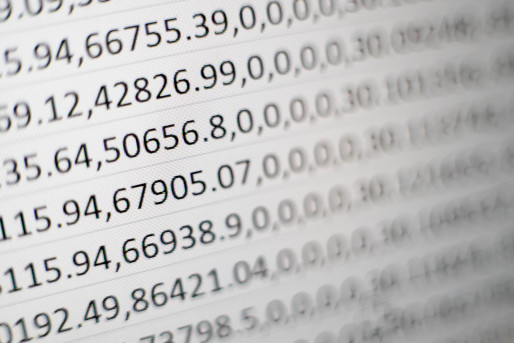
image source Mika Baumeister
Remember when I asked you to remember the number 264?
if not, it’s right up at the top of this article
The reason that I wanted you to remember 264 is because that’s one week and four days in hours. Why this number?

Because I’ve created one week and four days of audio content, according to Podchaser
- One week and four days is 11 days total.
- 11 days is 264 hours.
- 264 hours is 15,840 minutes.
- As half hours, that’s 528 half hours.
Remember that for every 30 minutes of source audio (audio that you record), you’ll spend at least 90 minutes working on it.
- 528 half hours is 31,680 minutes
- 31,680 minutes will take 47,520 minutes to work on
- 47,520 minutes is 792 hours
- 792 hours is 33 days
So for 11 days of completed audio, you’re looking at 33 days of editing time.
if it’s done continuously, with no breaks in between edit jobs, and using "back of the envelope maths"
Can you guarantee that you can spend 33 days away from your main projects, working on audio? That’s more than a month of your time spent working on something which will be a loss leader until it is released.
And THAT’S assuming that you work 24 hours a day, seven days a week until the project is completed. Assuming that you work a 40 hour week, it will take almost 20 weeks (or 140 days) for you to complete this work.
Can you walk away from your main projects for 20 weeks and still ensure that they are completed?
To be fair, I’ve used the numbers for the 332 episodes of shows that I have been on. Most companies will aim to have 6-25 episodes of their podcast before calling it a day - if they even get that far.
The same numbers for a 6 episode run of 30 minute episodes come out at:
- 6 half hours / 180 minutes of audio
- 540 minutes of edit time
- assuming that nothing needs to be looped or re-recorded
- which is 9 hours
- which is more than a whole day of editing
- assuming a 40 hour work week / 8 hour work day
- and assuming that you don’t take any breaks
- but with breaks that’s 1 day and 2 hours
And that’s just the editing step. You still have 21 other steps for each episode to complete.
In Closing
Podcasts can work as free
or paid, if you include sponsorship
advertising for a product or service that you are working on. But you need to know that the process of editing a podcast such that it is professional sounding and easy on your target audience’s ears takes a LOT of time.
And editing is only one step in a 22 step process for releasing an episode. And THAT assumes that you’ve already prepared the show for release. I’ll talk about them in a future article, but preparing a show for release includes:
- creating an RSS feed
- submitting that to Apple Podcasts
- because a large swath of podcatchers actually use Apple Podcasts behind-the-scenes
- so if you’re not on Apple Podcasts, most listeners won’t find your show or be able to listen
- waiting for Apple Podcasts to approve the RSS feed
- this is a process which can take up to 27 BUSINESS days (or 5.4 weeks), depending on the time of year that you submit for approval
- public holidays mean that this process slows down
- getting show art completed
- writing a good description for your show
- coming up with a good, descriptive name
- commissioning a musician or licensing some music bumpers
- never use any copyrighted materials for which you don’t have a license
If you don’t correctly budget your time for editing, you’ll likely spend your evenings and weekends editing rather than spending time with family or friends, or taking part in your hobbies or relaxation activities. Or worse, you can end up editing into the wee hours of the morning, over lunch, and during your commutes to and from work; all while working a 40 hour per week job
I did this for the first 11 episodes of The .NET Core Podcast and it is not sustainable
Editing can be expensive, but it saves time and money if you look at the middle to long term view.
At the end of the day, your entire brand is represented by the quality of the podcast, as released. An editor makes it their mission to make your final render sound as good as it possibly can do.
Get in touch today to find out how our podcasting services can help you to reduce the amount of time spent editing your podcasts.
